
Beroe LiVE Survey: Companies scramble to implement BCP as Coronavirus goes global

Data Collection and Compilation by Mirza Zack

The Coronavirus (Covid-19) pandemic shifts to Europe and the U.S., and countries across the globe are instructing its citizens to end discretionary travel, avoid large gatherings, and work from home where possible.
The great disruption to the normal way of life is unprecedented as hundreds of millions of people across the globe are trying to cope with the social distancing measures -- a concept that seemed alien just three weeks ago.
The pandemic is resulting in prolonged lockdown in many countries around the world. Italy and China, for example, went for total shutdown, while other nations are implementing varying degrees of social distancing measures. The situation is continuing to evolve with possibilities of more “draconian measures” on the cards.
The trade flow is being impacted in a big way: German ports are bracing for trade to take a severe blow in the coming days as the coronavirus outbreak led to a plunge in shipments and an increase in transport costs in Europe's largest economy.
Since deliveries from China to Germany take up to six weeks, the port of Hamburg, Germany's largest trading hub, and smaller inland ports are only now beginning to feel the full impact of the COVID-19 virus, which has disrupted the container shipping trade and supply chains the world over.
Also, Port of Antwerp has noted the serious consequences of Coronavirus, which has led to around 20 percent fewer sailings from China, with a global effect of a 1 percent reduction in container transport throughout 2020, according to the Belgian port.
In the port of Antwerp, based on preliminary forecasts, it is estimated that a month of traffic to and from China will be lost as a result of the pandemic. This corresponds to 115,000 containers, or 7 percent container traffic to and from China.
Amidst this great disruption to trade, business and normal way of life, Beroe has been receiving multiple queries from Procurement Managers relating to Business Continuity Plan (BCP) arising out of this situation. In order to get a clear picture, we ran a survey among users of Beroe LiVE, a community of thousands of procurement decision makers, to find out the level of preparedness when it comes to BCP.
The Survey
Sourcing and Supply Chain professionals from more than 450 companies across the globe participated in the survey. A whopping 70 percent of respondents were from North America and Europe -- the reason could be because these two regions are currently experiencing a massive spike in infection rate.
I am based in:
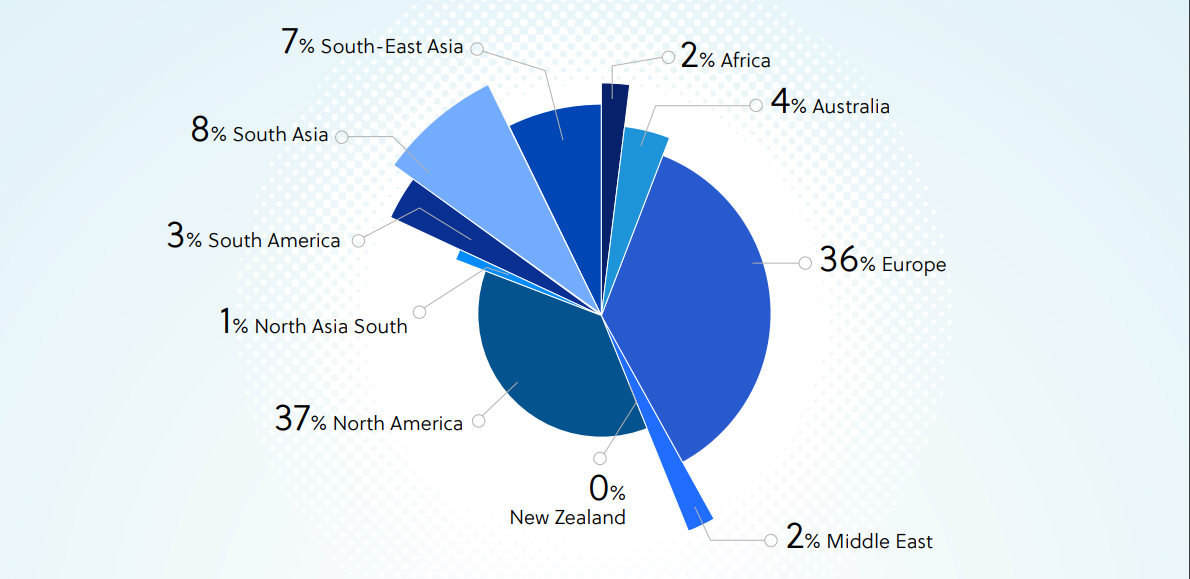
Nearly 50 percent of respondents said their company has rolled out Business Continuity Plan (BCP), while 23 percent said either No or Don’t know.
Has your company rolled out a Business Continuity Plan (BCP) to tackle any disruptions relating to Coronavirus (Covid-19) outbreak?
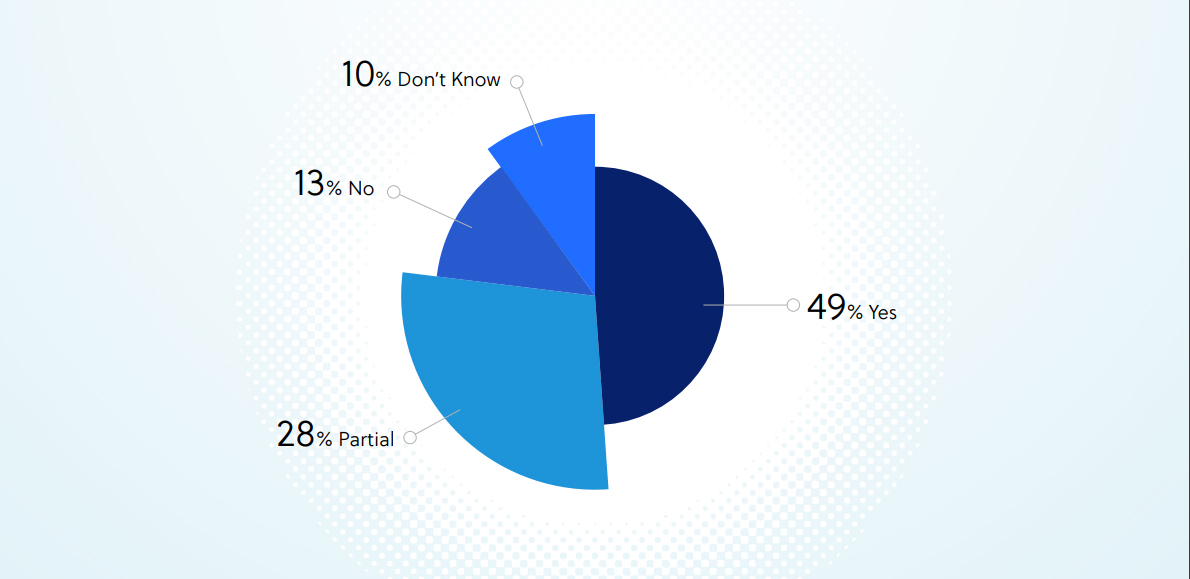
Has your company rolled out a Business Continuity Plan (BCP) to tackle any disruptions relating to Coronavirus (Covid-19) outbreak?
(Region-wise Breakup of Respondents)
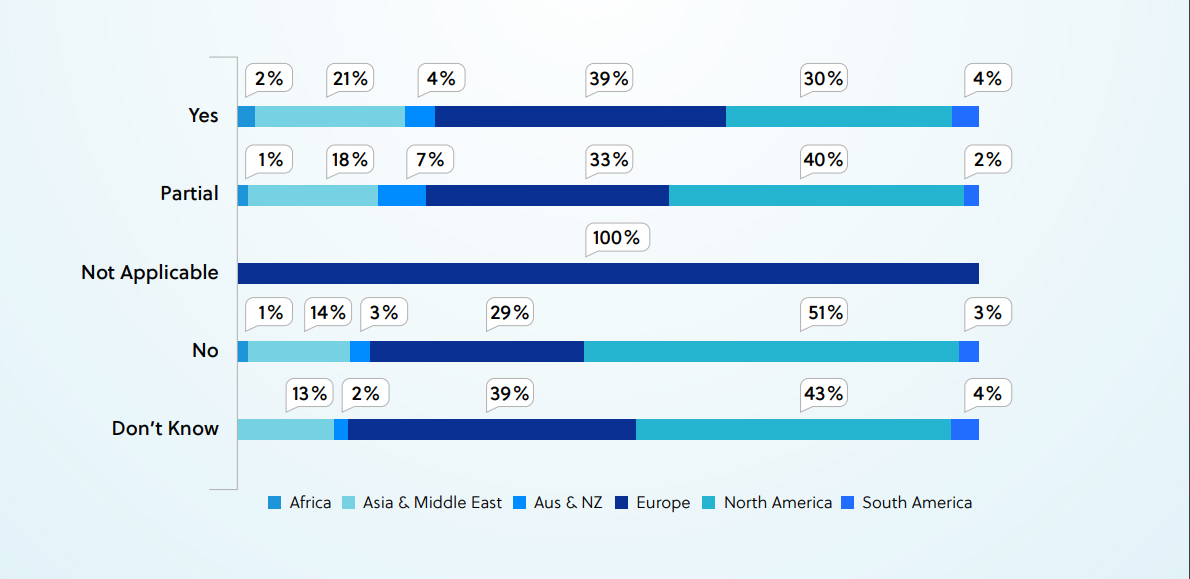
More importantly, 57 percent of respondents said they have identified the raw material and services that are essential for the production and delivery of their company’s products/services during the BCP period.
Worryingly, nearly 60 percent of respondents said their critical suppliers did not share their BCP plan.
Few respondents informed Beroe that BCP is built-in during the RFI process. Also, couple of them said the BCP shared by suppliers were of generic nature and not related to Covid-19 outbreak.
Have you identified the raw material and services that are essential for the production and delivery of your company's products/services during the BCP period?
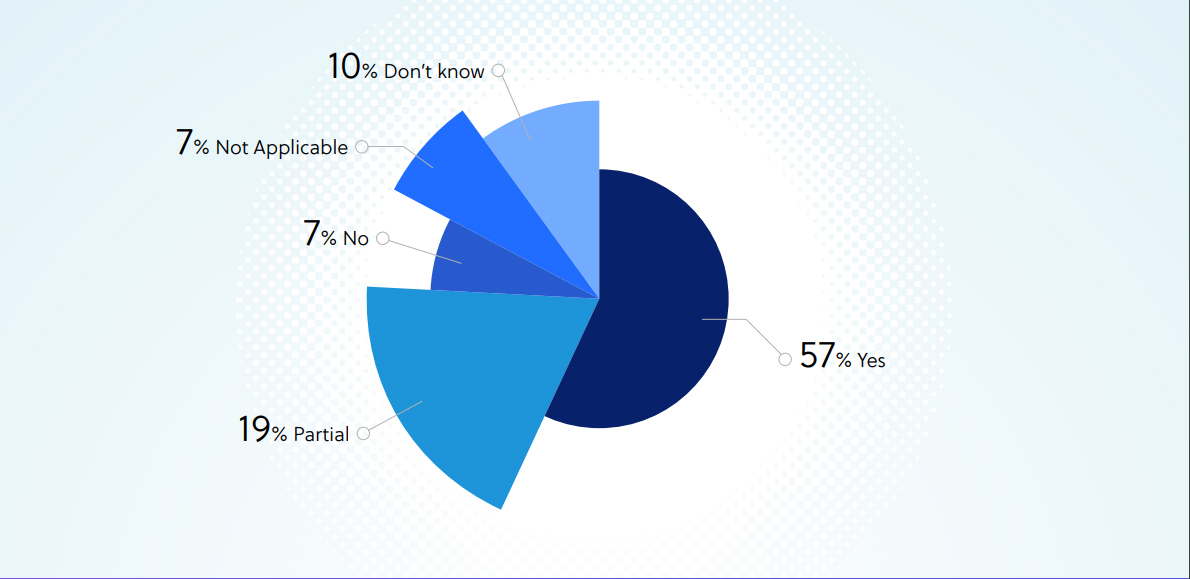
Did your critical suppliers share their Business Continuity Plan (BCP) with you?
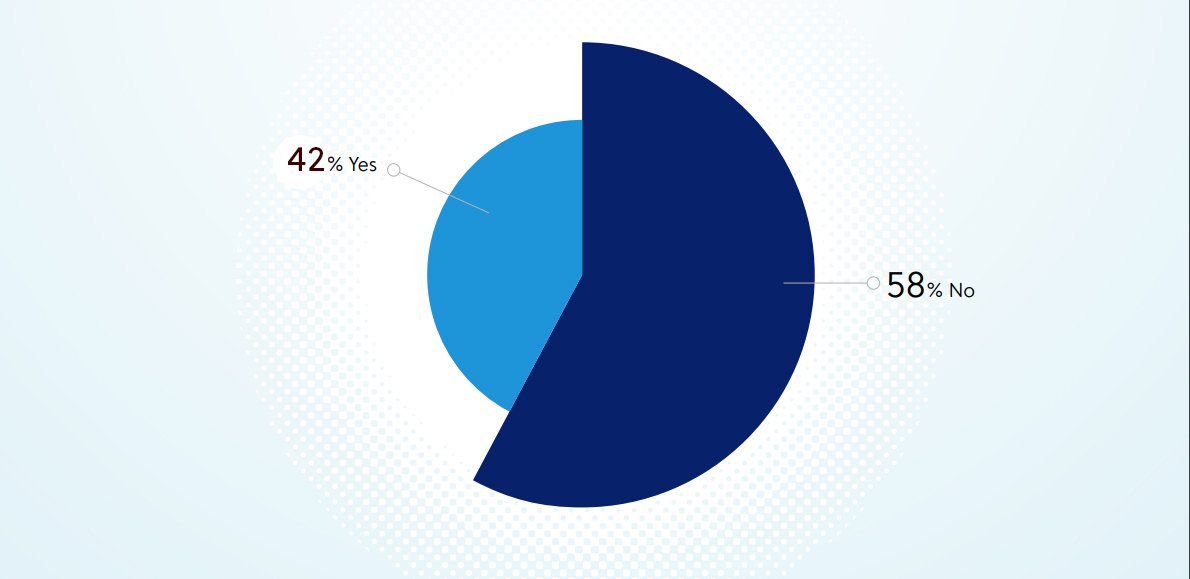
Have you identified the raw material and services that are essential for the production and delivery of your company's products/services during the BCP period?
(Region-wise Breakup of Respondents)
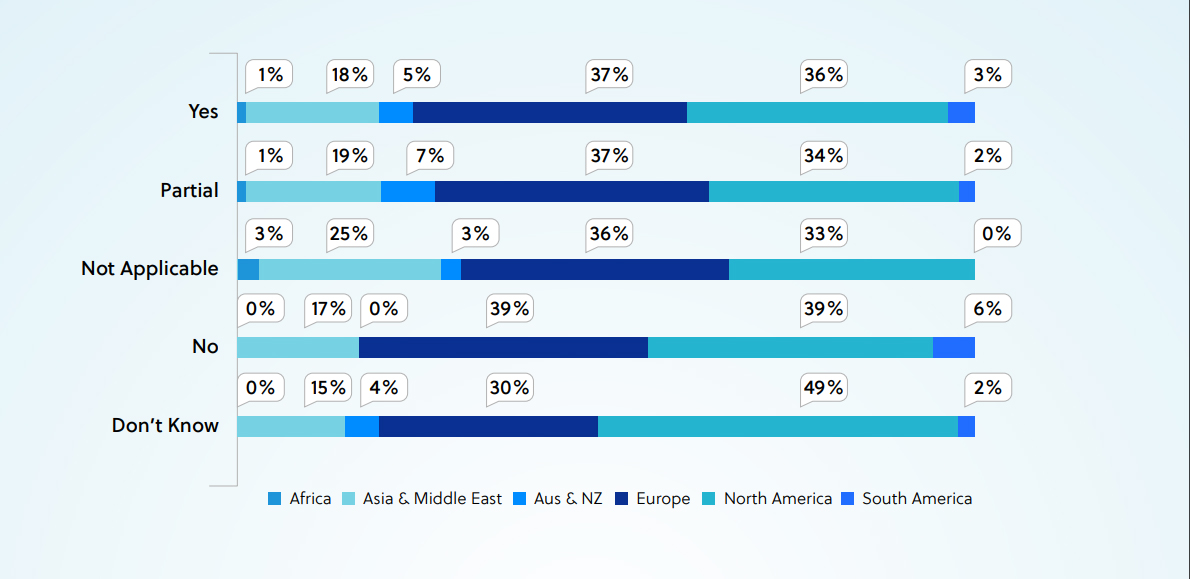
Did your critical suppliers share their Business Continuity Plan (BCP) with you?
(Region-wise Breakup of Respondents)
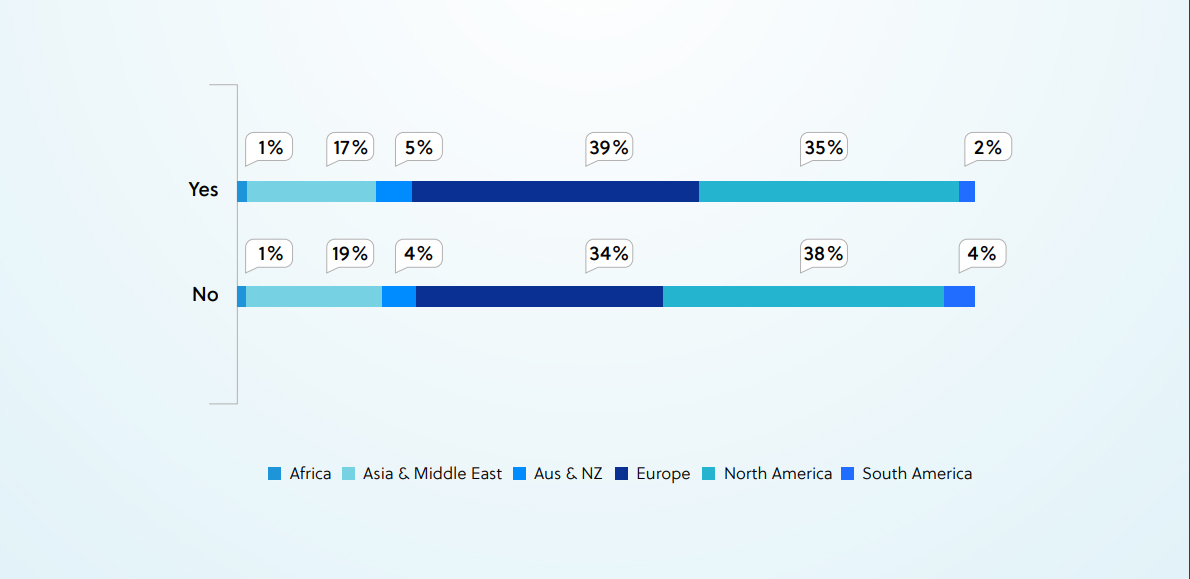
Here are the selected comments from respondents. We are not revealing their names as they are not authorised to speak on behalf of the company.
- “Most, but not all, of our suppliers have shared their most recent Business Continuity Plans as COVID-19 has taken hold in North America. We are working on gathering the BCP's for the remaining suppliers”.
-- Strategic Sourcing Manager based in North America
- “Only a few critical suppliers plus some have no BCP in place.”
-- Category Manager based in Europe
- “We are still in the initial phase, but it will be important as the scenario of the situation must be observed”.
-- Category Manager based in South America
- “The suppliers don't know what's happening either. All depends on last minute government decisions”
-- Category Manager based in Europe
- “Some have and we are formally requesting our key suppliers to submit a plan to us within the next 5 days”.
-- Procurement Director based in North America
- “Still unsure on a lot of aspects from some suppliers”.
-- Category Manager based in Europe
- “The information that came from our critical suppliers was minimal and had no true value”.
-- Category Manager based in North America
- “At this time suppliers still have supplies of components and no real risk of no stock availability”.
-- Strategic Sourcing Manager based in North America
- "Majority of critical suppliers are based in China and they have returned to work, operating as normal. There are some delays of 1-2 weeks as they work through their back logs. Air freight is very expensive".
-- Category Manager based in Australia
- “We keep in touch over phone calls regarding the developments and precautions”.
-- Category Manager based in South Asia
Work From Home
The spread of coronavirus has meant many businesses have asked their employees to work from home.
We asked our Beroe LiVE community members about Work from Home/ Remote Working policy.
Sixty percent of respondents said the team has discussed Work from Home option with business stakeholders.
Interestingly, only one-third of respondents said that they strongly believe that remote working for a prolonged period of time will have no impact on productivity. Forty four percent were Neutral while one-fifth of respondents felt long-term work from home will impact productivity.
Several respondents told Beroe that office workers may have the luxury of working from home but this may not be the case for those who work in factories.
Has your team discussed "Work From Home" option with your business stakeholders?
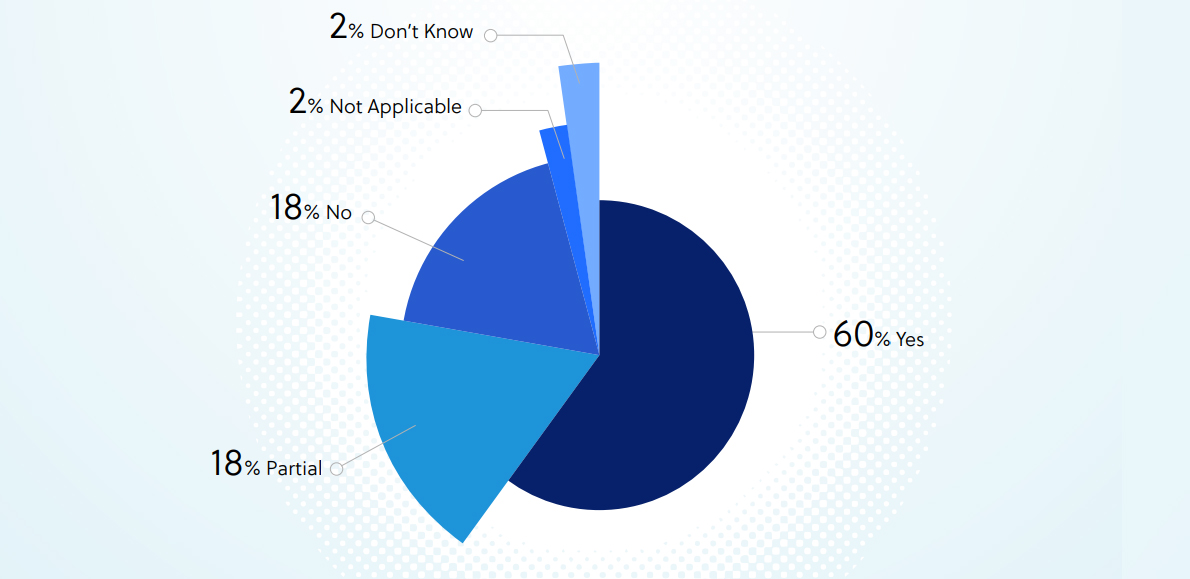
Has your team discussed "Work From Home" option with your business stakeholders?
(Region-wise Breakup of Respondents)
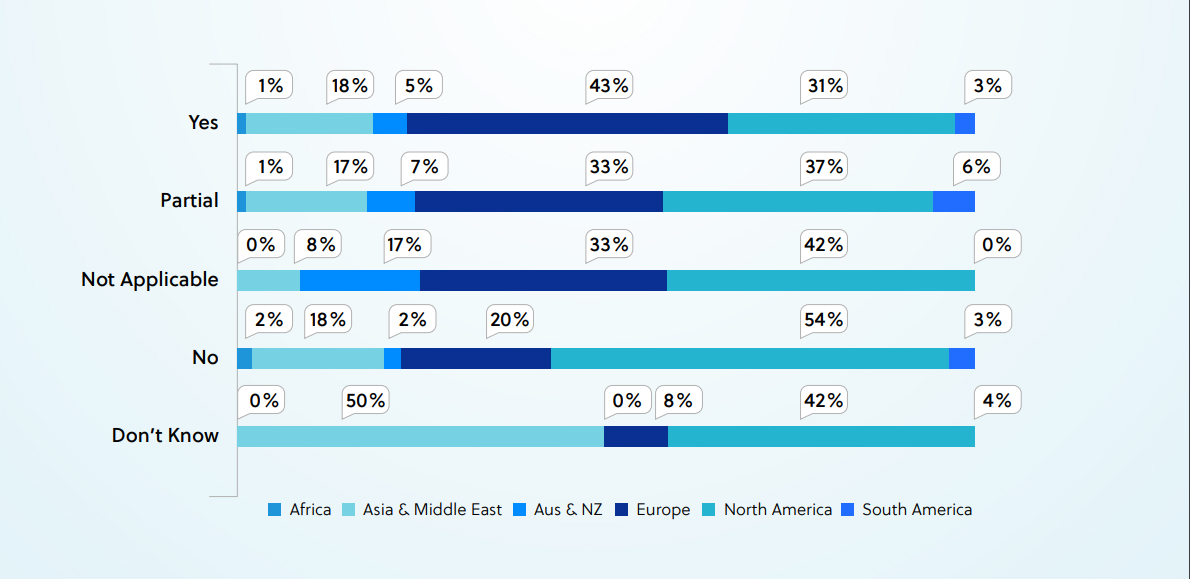
Below are select comments from respondents.
- “Harder to work in plants from home -- but our corporate offices are prepared to work from home with no disruption for as long as need be”.
-- Procurement Director based in North America
- “Back-office and middle office no impact. Front office will have an impact”.
-- Procurement Director based in North America
- “We still work globally and have skype meetings all the time anyways. Of course if the period extends to one month it will have implications”.
-- Category Manager based in Europe
- “For administration it will not have an impact, but widespread contagion among production-line workers would of course have high impact on productivity”.
-- Strategic Sourcing Manager based in Europe
- “We have "work from home" implemented since years, and adopted productivity tools allowing our employees to stay productive while working remotely”.
-- Procurement Director based in Europe
- “Unfortunately many employees are used to multiple screens, a desk, and the basic essentials to be productive. At home, many employees do not maintain this setup and I believe this hinders productivity. While this is true, I do believe working from home is the best course of action for the time being and failure to do so could result in prolonged productivity impact if an entire office was quarantined, and even those unable to work from home were required to be away from their workspace”.
-- A respondent based in North America
- “I feel as though for some people, working from home for a prolonged period will be a productivity booster (less time commuting, more time for work, etc.). However, for other individuals (myself included), working from home for a prolonged period will adversely affect productivity. I personally work better in an office where I can walk by to see someone and there are fewer distracting stimuli”.
-- Strategic Sourcing Manager based in Europe
- “A very clear work instructions and skillset for people management, and communication in "Work From Home" situation needs to build to reduce impact, confusion and prolong on productivity”.
-- Category Director based in South-East Asia
- “Nothing beats being in the office with your team, but in case of emergency it's a good solution”.
-- Category Manager based in Europe
Awaiting Normalcy
As of now, there is uncertainty as to when the outbreak will be controlled. We asked Beroe LiVE community members as to when do they think normal business situation will be restored.
Two-thirds of respondents said normalcy could be restored between 3 and 6 months. One-third said they don’t know when the outbreak will be eventually controlled. About 4 percent said they don’t expect normalcy to be restored before at least a year.
Few respondents were worried about fake news fuelled by social media adding to the panic. Also, the general sense is that the situation will get worse before becoming better.
As per you, normal business situation will be restored:
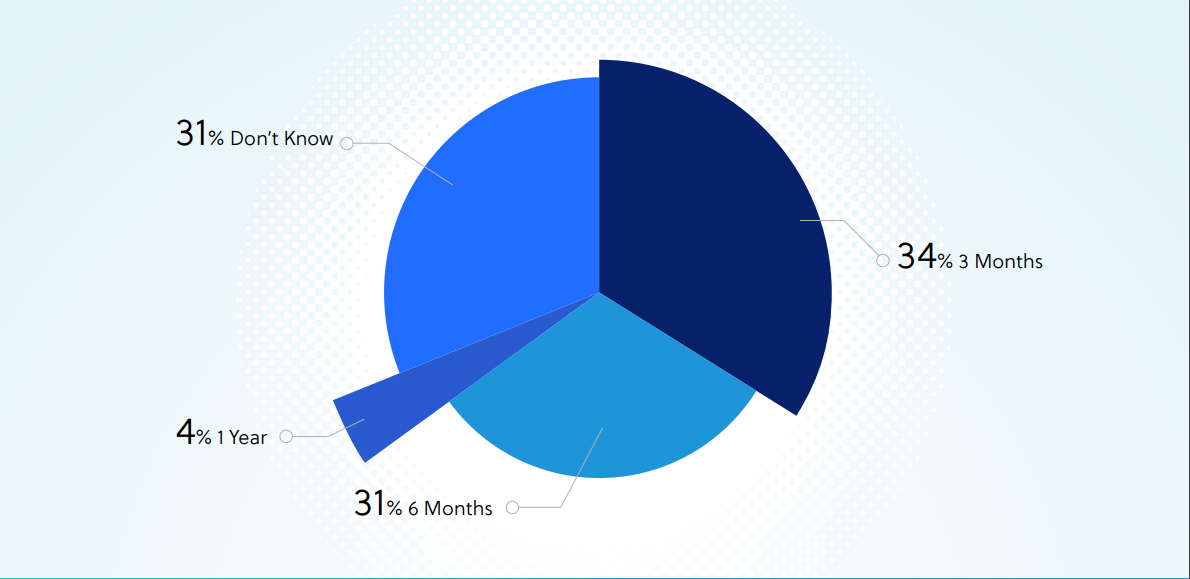
Below are the select comments from respondents:
- “I have been looking the John Hopkins map and the impact on U.S. is increasing. I have observed that the amount of people infected in the U.S. jumped from 8 people/hrs on 03/10 to 15 people/hrs on 03/11. It is too early to predict”.
-- Category Director based in North America - “We are hopeful that COVID-19 will follow the same path as the seasonal influenza and begin to subside over the warmer summer months. However, there are some concerns that the effect may never subside fully given sensational media coverage and content being shared on social media platforms”.
-- Category Manager based in North America
- “From what I hear and understand this will peak in the next month and then start to recover, i.e, temporary disruption, albeit short and significant disruption generally”.
-- Category Manager based in Europe
- “I believe things are going to get worse before getting better. Predict in the next month or so if we don't contain the virus there will be high impact to our company and the world economy”.
-- Category Manager based in North America
- “No way to know as the virus is just getting started in North America. Our supply chain from China will be back to full capacity in less than 3 months”.
-- Senior Vice President based in North America
- “I would say within 6 months a new norm will be established”.
-- Category Manager in North America
- “I sincerely hope ASAP”
-- Category Manager in Europe
Conclusion
We all are in uncharted waters. Business disruptions are being experienced all across the globe. Stay safe and follow your local government guidelines.
Meanwhile, below is an advisory from the World Health Organization (WHO):
“Standard recommendations to prevent infection spread include regular hand washing, covering mouth and nose when coughing and sneezing, thoroughly cooking meat and eggs. Avoid close contact with anyone showing symptoms of respiratory illness such as coughing and sneezing”.
Related Insights:
View All
Get more stories like this
Subscirbe for more news,updates and insights from Beroe






